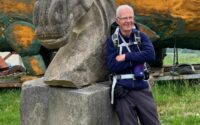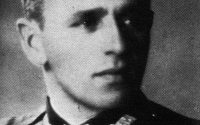Re-connection Part 2
November 2017 – May 2018
At the Conservative Party Conference in 2016, the then British Prime Minister uttered a most infamous statement that ‘a citizen of the world is a citizen of nowhere.’ I am, like many other women and men who hold British citizenship proud to be one of the nowhere citizens – everyone of us is free to create our own identity and no one has any right to say we are wrong. Germany which still seems to have, according to sections of our media, the archetypal image of the precise, stiff blond German is in reality a country of native born black, coloured, white and yellow faces all speaking German and all mixing as Germans. Other incomers have adopted German citizenship for the reason that they consider themselves European, outgoing ‘Citizens of the world.’ As elsewhere in Europe there is a populist movement with nationalistic tendencies but much less a sense of insularity.
For me, the important thing was to retain my European commonality and citizenship. Being British for me has more to do with adding the finer points of Britishness to the European mixture and this has played its role in stabilising our continent. Therefore I proceeded with my application for Polish citizenship, or more exactly to confirm the citizenship officially.
The Polish law firm ‘Lexmotion’ based in Kraków acted as power of attorney and made our submission on behalf of myself and two of my sons. We enclosed originals, or at least stamped extracts of our birth certificates, my marriage certificate, my father’s original naturalisation certificate and my parents original marriage certificate as all these had to to be transferred to the Polish equivalents. Ironic to recollect that all those years chasing a ghost birth certificate belonging to my father was not required as his official War Record was sufficient. The full package of documentation took around four weeks to compile and send to Warsaw for processing. Would we have still taken this step had Britain not voted to leave the EU? I think so as I now believe it is important not to lose sight of your ancestry and mine is strongly invested in Central Europe.
By mid February 2018, we had all received our Polish equivalent of our birth certificates and our confirmation of citizenship. The final step was to apply for PESEL numbers (roughly the equivalent of National Insurance numbers) and for passports, all of which were completed by Lexmotion on our behalf. The entire process up to receipt of our Polish passports took around five months to complete and we would never have achieved this time-scale without the assistance of a power of attorney. The money spent was worth it.
Now that I carry Polish citizenship, I continue the process of learning the language which is as challenging as a black flag ski run. The grammar is difficult – do not be put off by the fact there is no word for ‘the’ – it more than makes up for it with its case based system. Vocabulary? You can’t even guess what a word means unless it’s been borrowed from English. With German, Italian or French it’s possible to make an educated guess at some words. For example, ‘the clock’ in German is ‘die Uhr’, in Italian it’s ‘l’orlogio’ and French ‘l’horloge’ but in Polish it’s ‘zegar’, – where did that come from? There is a logic to all the ‘zeds’, but it has more to do with pronunciation. One Polish friend advised me not too worry too much about the grammar structure as Poles themselves get it wrong too, even though unlike English, it is relatively consistent. In any case, I’ll always learn new words and phrases when I travel to Poland where, like any second language, you learn through everyday context.
Now it is time to put the context of my ancestry into being in the places they originated and any historical background that links to my family – back to Poland and Germany.
Ends


